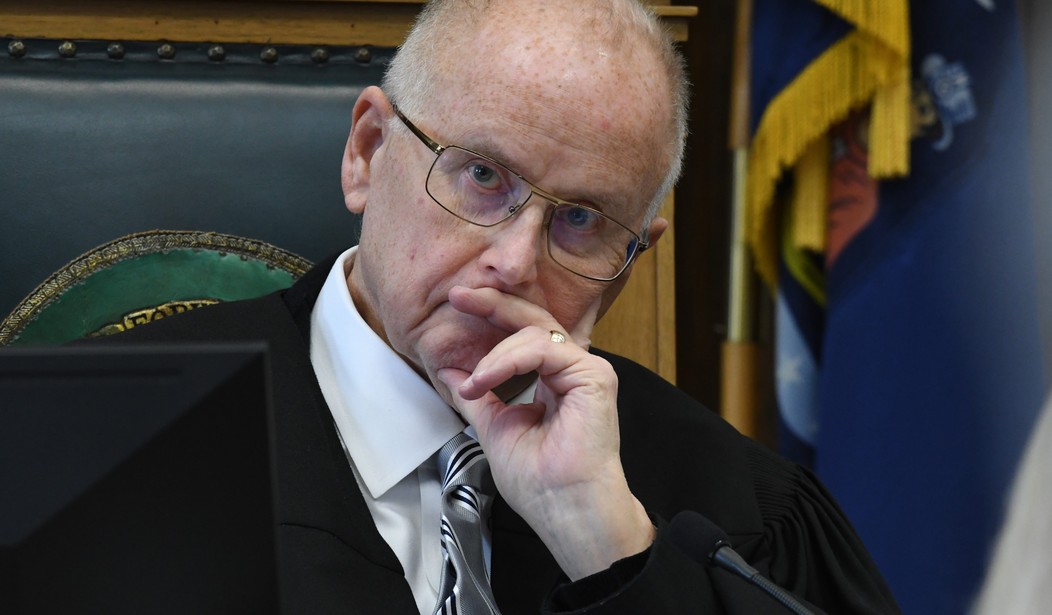It would be incredibly ironic if the trial of Kyle Rittenhouse led to more conservatives embracing what has typically been seen as the “liberal” cause of criminal justice reform, but stranger things have happened, and there’s no doubt that the trial has been an eye-opening experience for many folks who don’t have much first-hand knowledge of how the criminal justice system actually operates.
The behavior from Assistant District Attorney Thomas Binger and prosecutor Joseph Kraus has been particularly galling for a lot of folks, and over at Fox News former U.S. Attorney Brett Tolman and Right on Crime’s Kurt Altman argue that the trial should give conservative lawmakers a reason to ponder whether it’s a good idea to give prosecutors more power at the expense of judges.
Proponents call it truth in sentencing. The result is the tipping of the state’s criminal justice balance of power in favor of prosecutors, who, let’s not forget, are partial actors in this system.
What is happening in Kenosha should give lawmakers pause before choosing this course. The evidence presented in the case by both the prosecution and the defense clearly supports Kyle Rittenhouse’s contention that he acted in self-defense as he attempted to guard property threatened by rioters.
Video evidence shows individuals chasing, attacking and threatening a 17-year-old Rittenhouse with his life, with at least one pointing a gun at him before he fired, and another trying to take his own gun from him while shouting that he was going to kill Rittenhouse. Yet, the prosecution has pursued six criminal charges against him, including first degree reckless homicide and multiple weapons charges.
Prosecutors review the facts, decide charges and determine how the case will resolve. If infused with the unmitigated ability to influence the outcome by a mandatory minimum sentence, the prosecutor also determines the defendant’s sentencing fate.
Simply put, prosecutors are the most powerful actor within the criminal justice system, and since the 1980s, their power has only grown. Luckily for Rittenhouse, Wisconsin has preserved the authority of the judge in a criminal case.
I think there are plenty of folks on the Right who are willing to take a look at reforms to the criminal justice system, particularly to curb prosecutorial abuses. But while there’s no denying that the Left is far more active in pushing for reforms, as Tolman and Altman point out, the Left is bringing its own biases to the issue.
There are some who would otherwise contend that a 17-year-old whose brain is not fully developed should never be charged as an adult, that now call for the young Rittenhouse to be made an example of in facing adult charges.
Those who call for clemencies, commutations, second looks and pardons, and who actively search for mitigating facts to support a petition for the same, would ignore the glaring evidence of Rittenhouse’s self-defense. Those who call for restorative justice would deny the extension of mercy, or even justice, to Rittenhouse simply because he does not fit their political narrative.
Perhaps the most disappointing, Rep. Hakeem Jeffries, D-N.Y., a co-sponsor of the First Step Act, has publicly called for such aggressively woke policies like the defunding of the prison industrial complex, and yet before all the evidence had even been presented, Jeffries tweeted “Lock up Kyle Rittenhouse and throw away the key.”
A progressive who would withhold justice from someone they do not like is devoid of credibility when discussing criminal justice policy. Period.
That’s really the crux of the issue. Even if there are people on both sides of the political aisle who agree that the criminal justice system needs reforms, the Left and the Right not only have very different ideas of what those reforms look like, but as we’ve seen with Rep. Jeffries’ comments, some of the most vociferous supporters of criminal justice reforms are willing to lay those ideas aside if it means that someone they don’t like gets put in prison. It’s hard to find common ground when one side’s not acting in good faith.
Thankfully, not every criminal justice reformer is as much of a political hack as Jeffries, and I do think it’s possible to find some areas of agreement among those working in good faith. Look at the public defenders who’ve come out and publicly opposed New York’s “may issue” carry laws that put people in prison for simply carrying a firearm without a government permission slip, for example. Even though most of these public defenders would describe themselves as progressive or liberal, they still came to the same conclusion as most folks on the Right who believe that New York’s gun control laws are criminalizing a constitutional right and need to be struck from the books.
I’d love to see some of those public defenders sit down with the folks at Right on Crime, who say they want “a prison system that incapacitates dangerous offenders and career criminals but which is not used in such a way that makes nonviolent, low-risk offenders a greater risk to the public upon release than before they entered.” It seems to me there’s a lot of common ground that could be found there, and with more conservatives paying attention to these issues as a result what we all witnessed from the prosecutors in Judge Bruce Schroeder’s Kenosha courtroom, maybe we can start to chart a more sensible and sound course on criminal justice reform.










Join the conversation as a VIP Member